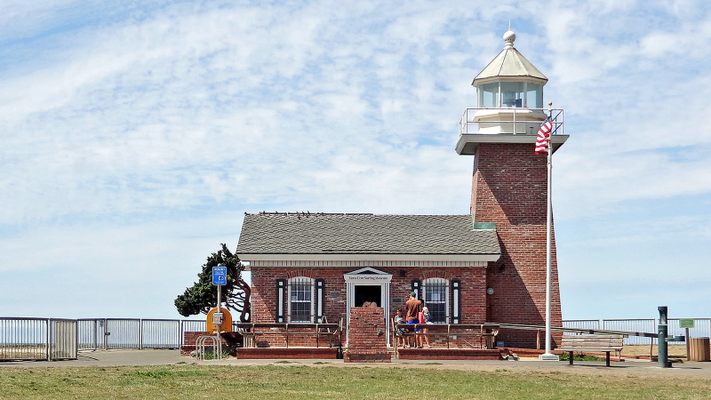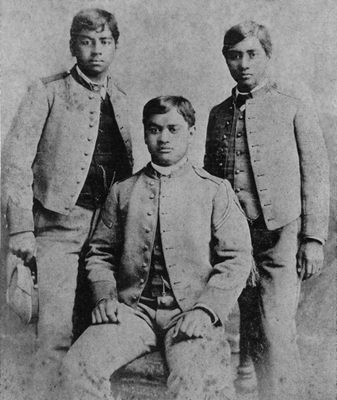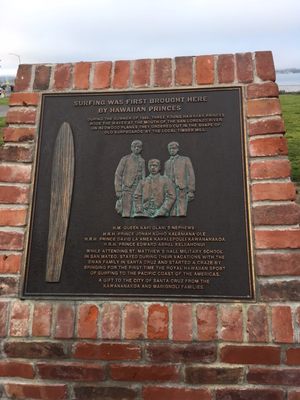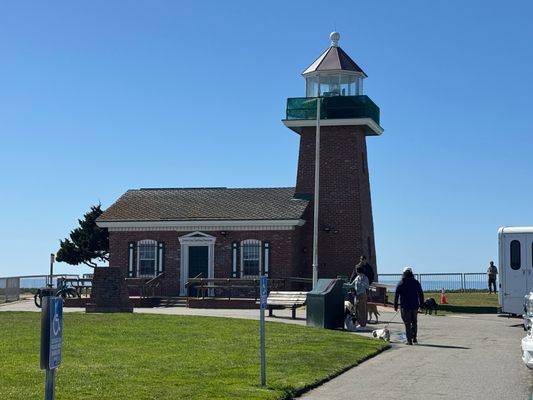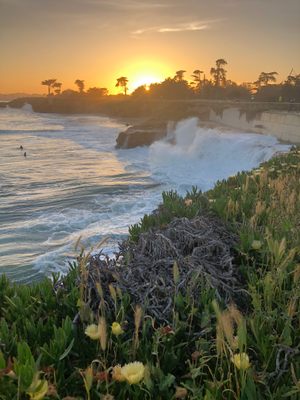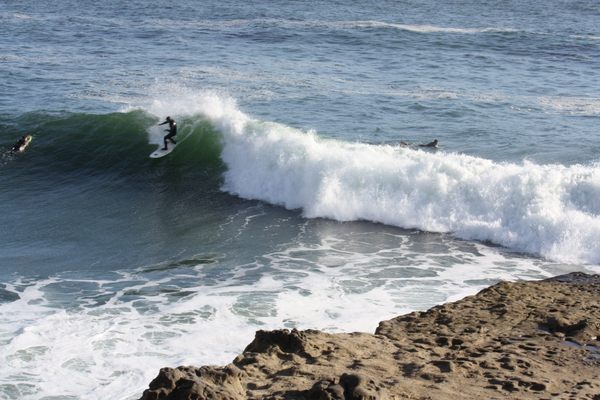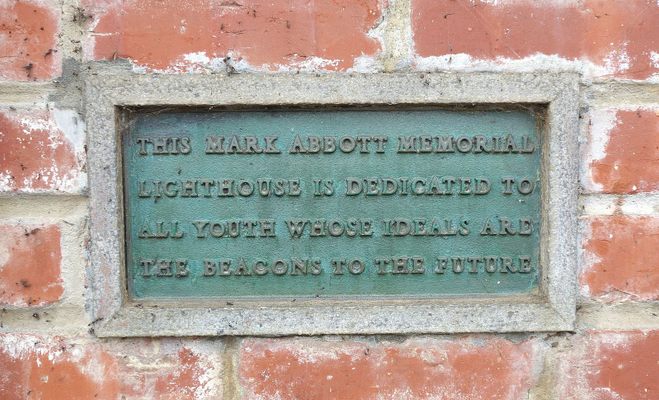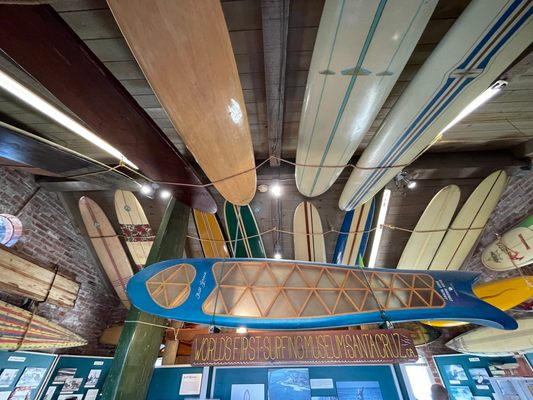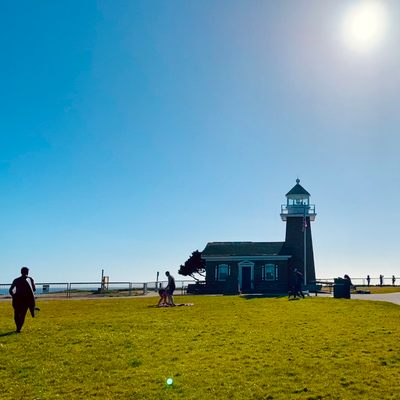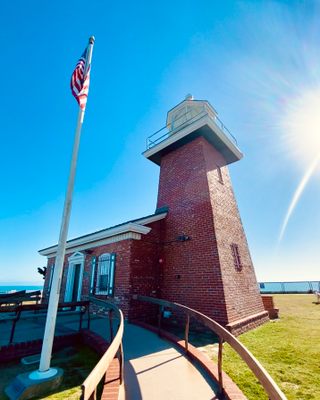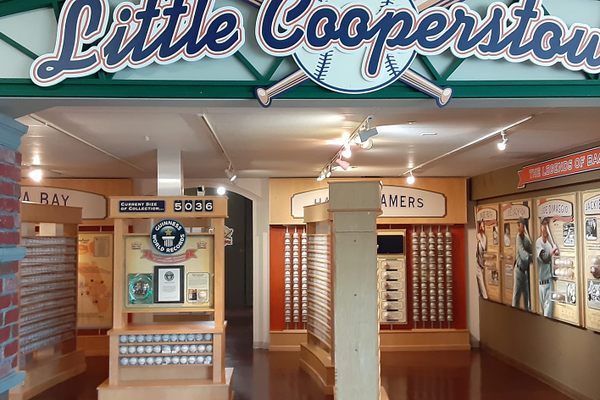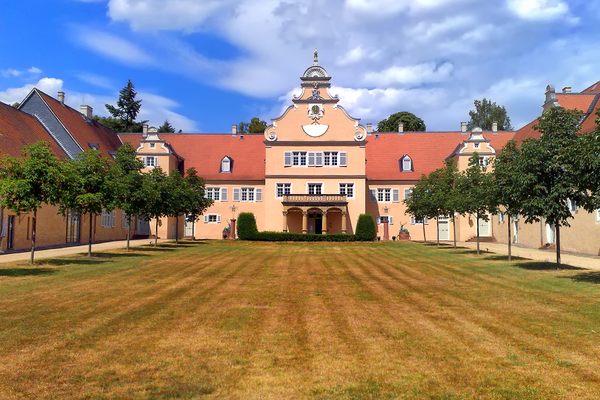About
A lighthouse on the north tip of Monterey Bay houses a museum that chronicles the history of surfing, which was delivered to Santa Cruz by three Hawaiian princes.
Surfing, of course, did not originate in California. It's an ancient Polynesian sport, but Santa Cruz was its point of entry in the United States. It was introduced during the hot summer of 1885, when three teenage Hawaiian princes, David Kawananakoa, Edward Keliiahonui and Jonah Kuhio Kalaniana’ole, escaped from their boarding school classes at St. Matthew's in San Mateo, California, hopped on a train, and headed to the ocean.
The beach was busy that day, with swimming races taking place, revelry in the many bathhouses along the shore, and even a theatrical troupe performing on the sand. But everyone was distracted from their amusements when the three Hawaiians took to the waves on massive boards made from local redwood pine. All those on the shore spent the day admiring the princes' surfing exhibition, with the Santa Cruz band capping off the evening by bonfire.
The three princes eventually left Santa Cruz to fight for Hawaiian independence, but their influence remained. In 1896 the Santa Cruz Surf remarked that, “the boys who go in swimming at Seabright Beach use surfboards to ride the breakers, like the Hawaiians.” This remained true throughout the 20th century, and the Surf Museum chronicles the evolution of surf culture, from the beach parties of the 1950s to competitive surf competitions in the '80s and '90s.
The city's 130 years of surfing history are detailed through photographs, surfboards, and assorted artifact in the little museum, spitting distance from the ocean. When it faced closure in 2008, big names in surfing came out to save the museum, including Jack O'Neill of O'Neill wetsuits.
The lighthouse that houses the museum was erected in memory of 18-year-old Mark Abbott, who drowned while body surfing off Pleasure Point in 1965. With the reimbursement from his life insurance policy, Mark's parents wished to erect a memorial in his honor. There had previously been a lighthouse overlooking the Santa Cruz Anchorage, but it was torn down when it was no longer needed to guide ships into Monterey Bay. The Abbotts, recalling how Mark had loved the lighthouses along the Oregon coast, had one constructed in its place to remember their son.
In 1986 the city opened a museum in the body of the lighthouse building dedicated to the activity dear to so many Santa Cruzans, including Mark. From the lighthouse's perch, visitors can also watch surfers on Steamer Lane as they hang ten on their longboards, a modified take on the ancient Hawaiian boards.
Related Tags
Know Before You Go
There's a parking lot right by the museum, but when the surf is up, parking might be a block or two away.
Community Contributors
Added By
Published
February 2, 2017
